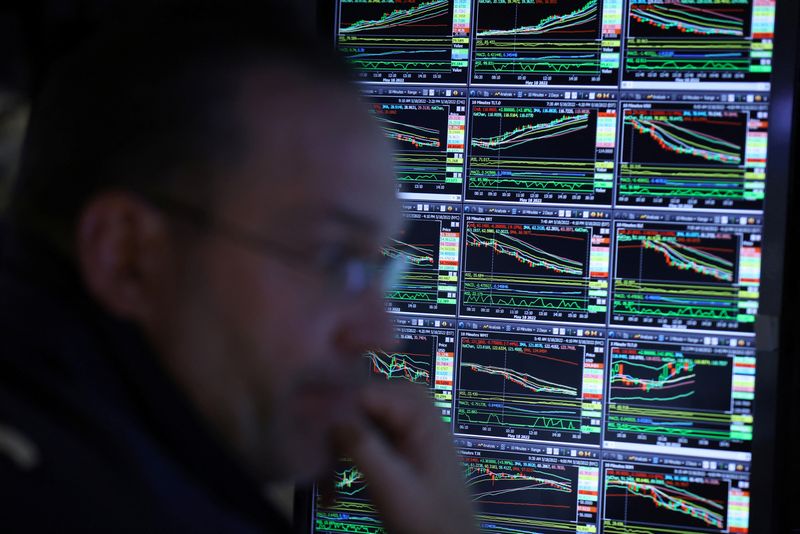
© Reuters. A trader works on the trading floor at the New York Stock Exchange (NYSE) in Manhattan, New York City, U.S., May 18, 2022. REUTERS/Andrew Kelly
(Reuters) – U.S. stock index futures fell on Thursday, signaling more selling on Wall Street as investors kept a close eye on the impact of rising inflation on the U.S. economy and corporate earnings.
The and the on Wednesday logged their biggest one-day percentage loss since June 2020 after dismal results from retailer Target Corp (NYSE:) underscored just how hard inflation is biting consumers.
Cisco Systems Inc (NASDAQ:) slumped 12.5% in premarket trading as the networking gear maker cut its 2022 revenue growth outlook due to China lockdowns and the Ukraine conflict.
The S&P 500 is down 17.7% so far in 2022, hit by factors ranging from the severity of China’s pandemic lockdowns, the conflict in Ukraine and the U.S. Federal Reserve’s hawkish stance.
High-growth stocks led the sell-off as investors scramble to adjust to tightening financial conditions. The benchmark index is down 18.2% from its record close on Jan. 3 and a close below 20% will confirm bear market territory, joining its tech-heavy peer Nasdaq.
Goldman Sachs (NYSE:) strategists estimated a 35% probability of the U.S. economy entering a recession in the next two years, while Morgan Stanley (NYSE:)’s latest research showed a 25% probability for a recession starting in the next 12 months.
Wells Fargo (NYSE:) Investment Institute on Wednesday reduced its economic expectations with a mild U.S. recession now on the horizon in its base case scenario for the end of 2022 and early 2023.
Megacap tech and growth shares such as Apple Inc (NASDAQ:), Microsoft Corp (NASDAQ:), Amazon.com (NASDAQ:), Alphabet (NASDAQ:) Inc and Tesla (NASDAQ:) Inc slipped between 1.1% and 2.4% in premarket trading.
Morgan Stanley dipped 1% to lead declines among the big banks.
At 06:22 a.m. ET, were down 407 points, or 1.29%, were down 53 points, or 1.35%, and were down 169 points, or 1.42%.
The CBOE volatility index, also known as Wall Street’s fear gauge, rose to 32.72 points, its highest since May 12.


Be the first to comment